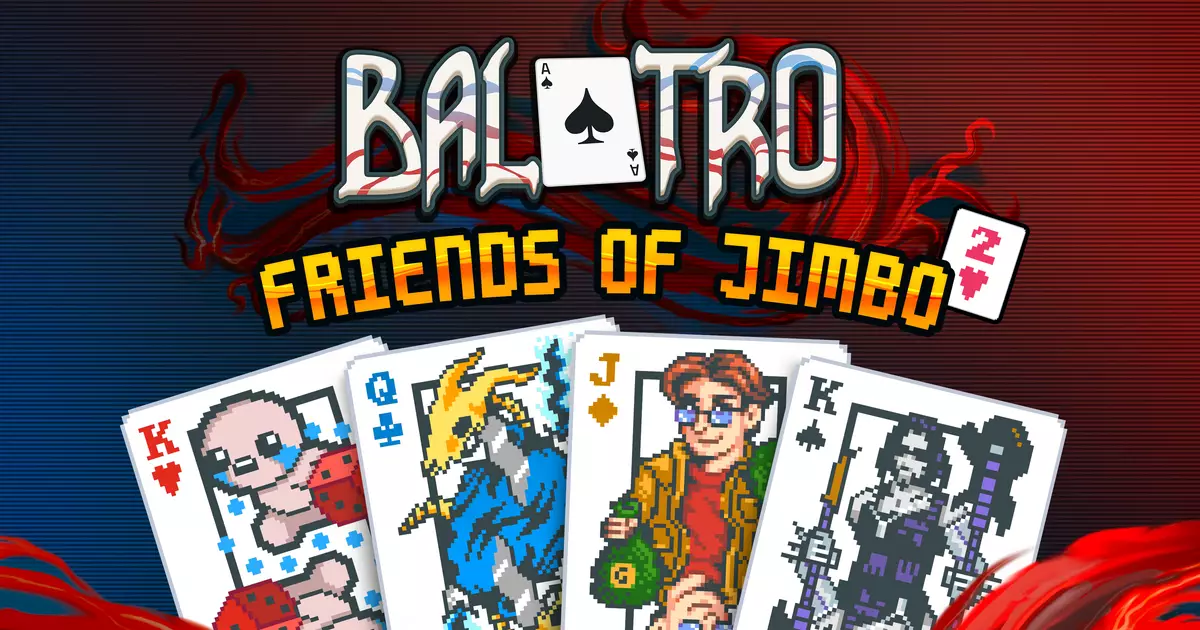Balatro, an enticing card game that fuses strategy with whimsy, holds a certain charm that initially draws players in. My experience, however, was brief; I played for an hour, enjoyed the mechanics and atmosphere, but ultimately decided to uninstall the game. This decision made me ponder whether my fleeting engagement was an indication of a larger pattern in gaming today—one that entices players with aesthetic pleasures while subtly leading them towards a predatory cycle of dependency. The game offers a unique escape with its colorful art and engaging gameplay but is it truly enough to warrant a lasting commitment?
New Updates: Cosmetic Changes or Real Value?
The recent update for Balatro introduced a second set of themed card art inspired by popular games such as Binding of Isaac and Cyberpunk 2077. Although refreshing visually, these updates are merely cosmetic and add no significant gameplay value. The addition of a “Customize Deck” menu allows players to swap card skins but leaves the core mechanics untouched. This raises an important question: do cosmetic updates serve as a substance to maintain player interest, or are they merely frosting on a cake that’s starting to crumble?
Previous updates, like the one released in August, followed a similar trend, tying in art from games including The Witcher 3 and Among Us. While these creative nods may delight fans of those franchises, they ultimately reflect a diversion away from deeper, more meaningful enhancements to gameplay or story. Depending on players’ reactions, this approach might build a superficial connection, but it risks overshadowing the need for well-rounded gaming experiences that engage the mind beyond aesthetic gratification.
Mixed Reviews: A Community Divided
Critiques within the gaming community reflect a spectrum of experiences. While my brief encounter left me unconvinced, others such as Katharine from RockPaperShotgun took a different stance in her review, praising Balatro as a “Bestest Best.” She applauded the game’s ability to turn numbers into thrilling spectacles and engaged players in a dance of mastery that is both intoxicating and rewarding. This dichotomy of opinion unveils an intriguing aspect of Balatro as it attracts both skeptics and fervent followers.
Yet, the notion that it merely “celebrates the joy of mastering a system” must be approached with caution. Is this joy cumulatively masking an underlying addictive structure, feeding into the psychological traps that many modern games employ? For every player who revels in the thrill of overcoming challenges, there may be another who finds themselves ensnared by an unyielding desire for progress, raising ethical questions about game design and player well-being.
Despite its alluring dimensions, my personal choice to uninstall Balatro speaks volumes in the ongoing conversation about player agency and the nature of modern gaming. The game’s strategy may appear inviting, but it is essential for players to discern the subtle strategies behind its design. For some, the enjoyment may foster deeper engagement; however, for others, like myself, awareness can lead to mindful disengagement when the allure of addictive gameplay becomes apparent. Balatro presents both a playground and a labyrinth: the decision to step in, continue exploring, or retreat lies with each player.

